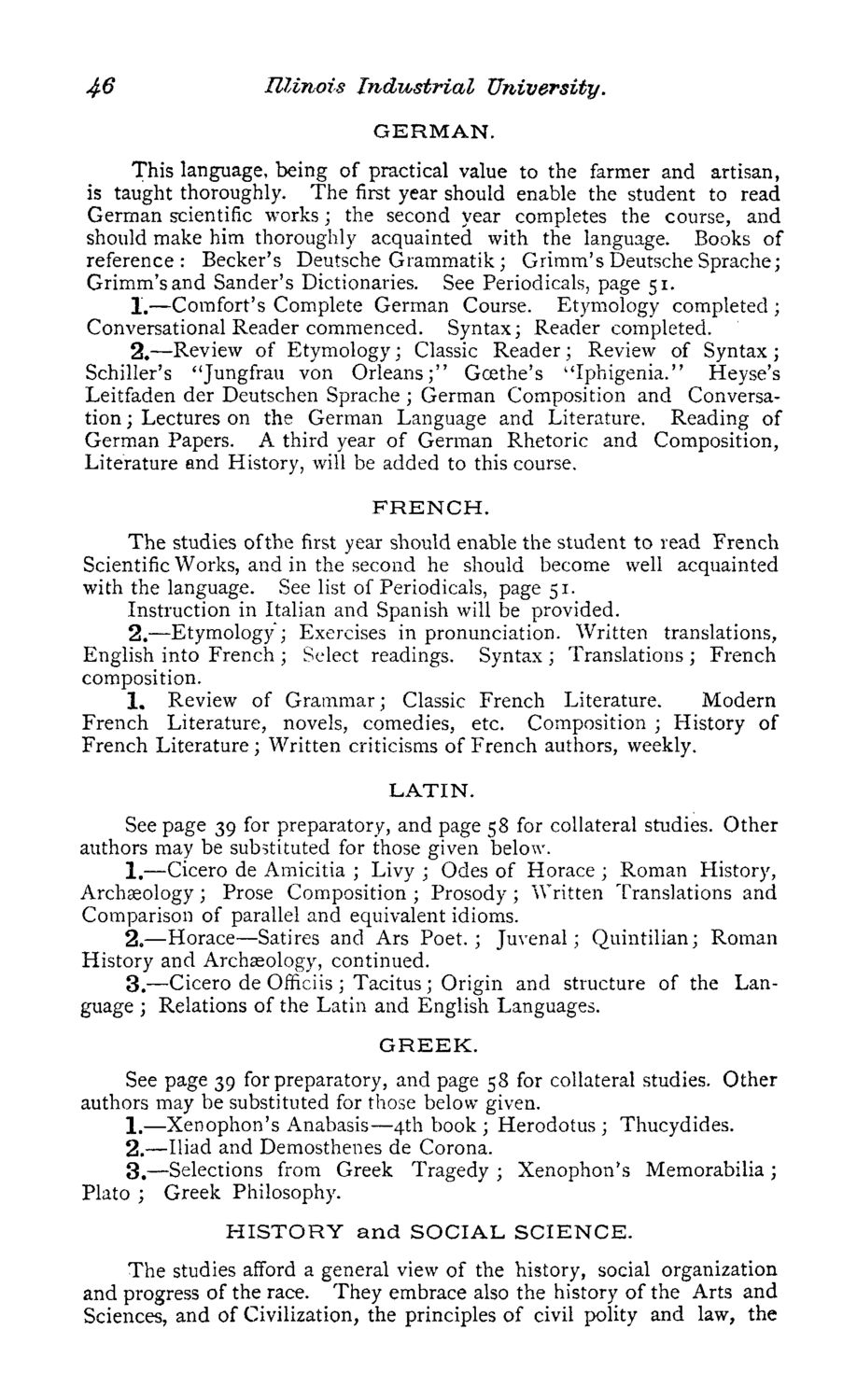| |
| |
Caption: Course Catalog - 1872-1873
This is a reduced-resolution page image for fast online browsing.

EXTRACTED TEXT FROM PAGE:
4-6 Illinois Industrial GERMAN. University. This language, being of practical value to the farmer and artisan, is taught thoroughly. The first year should enable the student to read German scientific works; the second year completes the course, and should make him thoroughly acquainted with the language. Books of reference: Becker's Deutsche Grammatik; Grimm's Deutsche Sprache; Grimm's and Sander's Dictionaries. See Periodicals, page 51. 1.—Comfort's Complete German Course. Etymology completed ; Conversational Reader commenced. Syntax; Reader completed. 2.—Review of Etymology; Classic Reader; Review of Syntax ; Schiller's "Jimgfrau von Orleans;" Gcethe's "Iphigenia." Heyse's Leitfaden der Deutschen Sprache ; German Composition and Conversation ; Lectures on the German Language and Literature. Reading of German Papers. A third year of German Rhetoric and Composition, Literature and History, will be added to this course. FRENCH. The studies ofthe first year should enable the student to read French Scientific Works, and in the second he should become well acquainted with the language. See list of Periodicals, page 51. Instruction in Italian and Spanish will be provided. 2.—Etymology'; Exercises in pronunciation. Written translations, English into French ; Select readings. Syntax ; Translations ; French composition. 1. Review of Grammar; Classic French Literature. Modern French Literature, novels, comedies, etc. Composition ; History of French Literature; Written criticisms of French authors, weekly. LATIN. See page 39 for preparatory, and page 58 for collateral studies. Other authors may be substituted for those given below. 1.—Cicero de Amicitia ; Livy ; Odes of Horace ; Roman History, Archaeology; Prose Composition ; Prosody; Written Translations and Comparison of parallel and equivalent idioms. 2.—Horace—Satires and Ars Poet.; Juvenal; Quintilian; Roman History and Archaeology, continued. 3.—Cicero de Officiis ; Tacitus; Origin and structure of the Language ; Relations of the Latin and English Languages. GREEK. See page 39 for preparatory, and page 58 for collateral studies. Other authors may be substituted for those below given. 1.—Xenophon's Anabasis—4th book ; Herodotus ; Thucydides. 2.—Iliad and Demosthenes de Corona. 3.—Selections from Greek Tragedy ; Xenophon's Memorabilia ; Plato ; Greek Philosophy. H I S T O R Y a n d SOCIAL S C I E N C E . The studies afford a general view of the history, social organization and progress of the race. They embrace also the history of the Arts and Sciences, and of Civilization, the principles of civil polity and law, the
| |